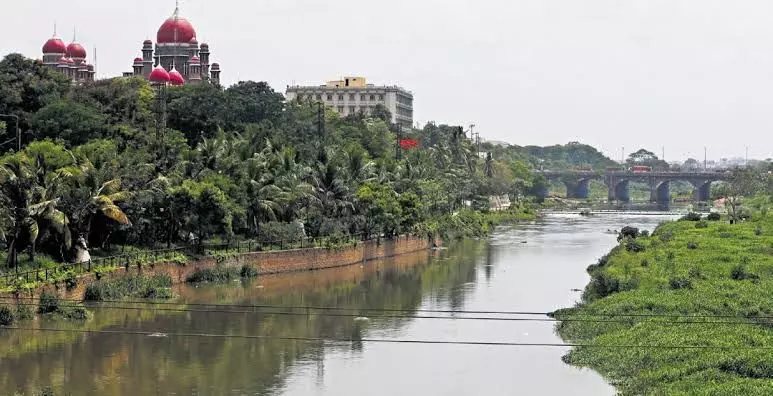Hyderabad: Over 100 activists write to Telangana govt, demand review of Musi riverfront project
They highlighted that demolitions have already displaced working-class families without clear legal or environmental clearances
By Anoushka Caroline Williams
Hyderabad: More than 100 activists, environmentalists, and academics across India have written to the Telangana government calling for an immediate, and thorough review of the Musi Riverfront Development Project.
The activists under the banner of the National Forum of Urban Struggles (SHRAM) and the National Alliance of People’s Movements (NAPM) have raised concerns about potential displacement, land grabs, and privatization.
They urged the government to implement a transparent, consultative approach that prioritizes ecological justice and local communities.
Concerns Over Displacement and Lack of Public Consultation
The activists expressed concerns about the speed of the project and the lack of a Detailed Project Report (DPR) or a Rehabilitation and Resettlement (R&R) policy.
They highlighted that demolitions have already displaced working-class families without clear legal or environmental clearances.
Environmentalist Soumya Dutta said, “The project is being hastened without proper groundwork, and demolitions are being carried out without a DPR or R&R policy in place.”
Prof. Rama Melkote, a retired academic, added, “It is distressing that such a large-scale project can proceed without public consultation or transparency. The people’s voices must be part of this project, not sidelined.”
Environmental Impacts and Ecological Free Flow
The activists emphasized the importance of preserving the ecological integrity of the Musi River, which has suffered from pollution from industrial and municipal sources.
They argued that any rejuvenation effort should not lead to the commodification of natural resources or encroachment on forests and agricultural land.
Activist Rohit Prajapati, who has raised similar concerns over the Sabarmati Riverfront Project in Gujarat, warned, “We need a true rejuvenation that addresses pollution at its root. Commodifying the riverfront could lead to further ecological degradation.”
Prof. Madhu Prasad urged the government to avoid repeating mistakes made in other riverfront projects. “Commercializing our urban commons harms both the environment and communities dependent on them,” she said.
Stopping Arbitrary Evictions and Ensuring Rehabilitation
The statement also addressed the issue of arbitrary evictions and demolitions. Activists are calling for an end to forced displacements, stressing the need for residents’ rights to housing, livelihoods, and democratic participation.
SQ Masood, an activist based in Telangana, stated, “Our goal should be to protect the rights of the riverine population, not to evict them without due process.”
Human rights advocate Shalu Nigam stressed that those displaced should be fully rehabilitated in nearby areas, saying, “People deserve to live close to their work, their communities, and educational institutions, rather than being uprooted far from these resources.”
Demand for Inclusive and Just Governance
The activists also urged the Telangana Congress government to align its actions with promises of socially just governance. Khalida Parveen, a Telangana-based activist, highlighted that inclusive governance should prioritize the welfare of all people.
“This government came into power promising social justice. A project like this should reflect those values by minimizing harm to vulnerable communities,” she remarked.
The activists called for a comprehensive, transparent review of the Musi Riverfront Project to ensure it benefits both the environment and the community. The project should consider ecological preservation, public consultation, and safeguards for vulnerable residents before proceeding further.